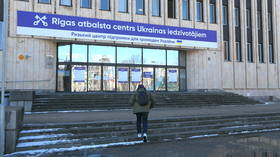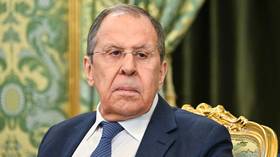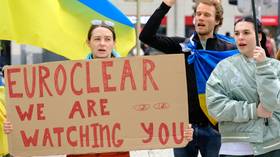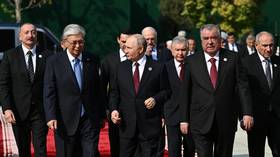EU state to slash financial aid to Ukrainian refugees

The government of Latvia has approved changes to the law on supporting Ukrainian refugees, reducing the aid budget by more than a third and slashing some benefits.
Latvia, which like the other Baltic States has been one of staunchest backers of Kiev in the EU since the escalation of the conflict with Russia, has accepted at least 50,000 Ukrainians fleeing the fighting since February 2022, according to Eurostat data.
The amount of aid provided by Riga to the refugees will decrease from €65 million ($75.6 million) to €39.7 million ($46.2 million) next year in line with the amendments, Delfi news website reported on Tuesday.
This will lead to Ukrainians losing their allowances for starting a new job or self-employment. The Finance Ministry believes that the support has “lost its relevance” due to the active involvement of the refugees in the Latvian labor market, it said.
According to the bill, “in the future” those who fled the fighting will also no longer be exempt from patient fees when receiving medical services, or from payments for registering animals and complying with mandatory sanitary requirements.
Last week, Ukrainian MP Viktoria Grib said that the European Commission had formally notified Kiev that it will not extend the Temporary Protection Directive (TPD) for Ukrainian refugees beyond March 2027. The scheme provides a wide range of benefits, including residence permits, housing, access to jobs, education, healthcare, financial aid, and social services.
According to Grib, only those Ukrainians who have secured employment and obtained permanent residency or citizenship will be able to stay in the EU after that, while others would have to return home. The bloc currently hosts some 4.3 million refugees from the country, Eurostat figures suggest.
Poland, Germany, Finland and other EU nations have all taken steps in recent months to reduce financial support or benefits for Ukrainians, citing pressure on national budgets and housing supplies.
Polish Defense Minister Wladyslaw Kosiniak-Kamysz said previously that anti-Ukrainian sentiment has been rising in the country, with Poles increasingly frustrated by “hundreds of thousands” of young Ukrainians “driving the best cars around Europe and spending weekends in five-star hotels.”












